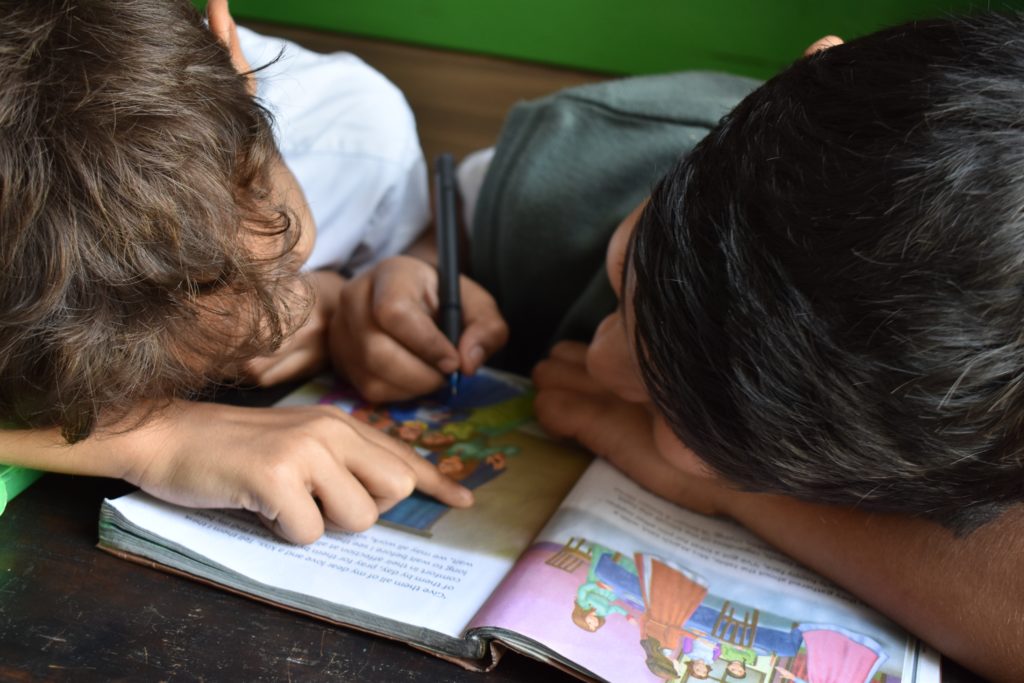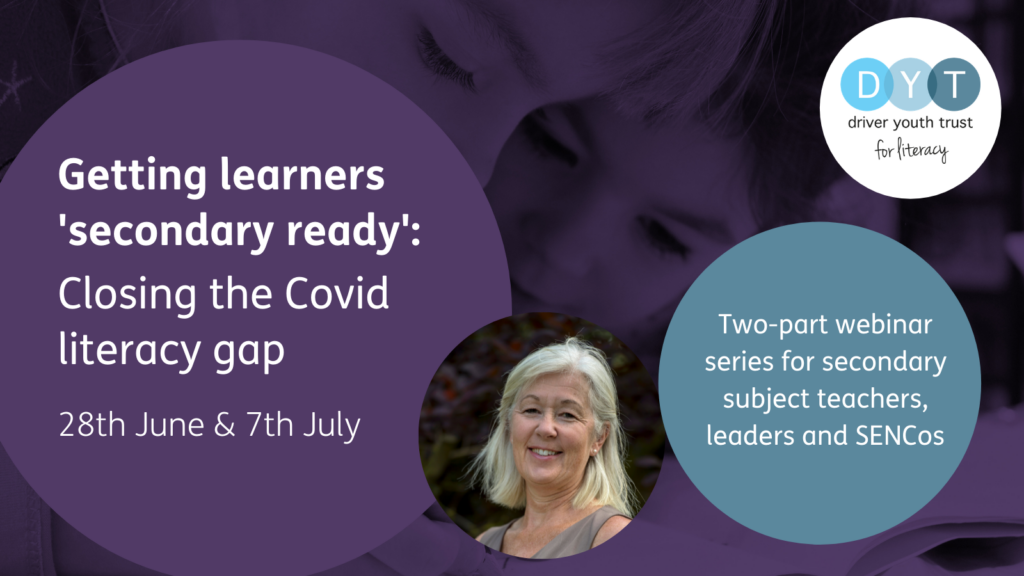
Understanding the Covid literacy gap
14/6/2021
Ahead of our upcoming ‘Getting learners secondary-ready: closing the Covid literacy gap‘ webinar series, our consultant Ruth Everett explains the Covid literacy gap and why she was inspired to create two professional development sessions to help secondary teachers to prepare for and support learners who aren’t ready for the demands of Key Stage 3.
What do we know about the pandemic’s impact on literacy skills?
ImpactEd’s February 2021 report revealed “the challenges with remote learning were felt much more strongly by pupils from disadvantaged backgrounds”. Similarly, the report from the Education Policy Institute reveals that “students have lost significant learning over the last year, and they are often behind where similar students would have been in previous years”. The EPI’s report indicates that disadvantaged learners have been particularly affected, particularly in the parts of the country where the pandemic resulted in significant ‘bubble closures’ and longer stints of home learning.
Knowing that the disadvantage gap was already 9.5 months by the end of primary school and then more than doubles again, to 19.3 months by the end of secondary school, the importance of intervening early in September 2021 to explicitly support the reading abilities of Year 7 has never been more important. Research indicates that, if unmitigated, these large learning losses could cause long term damage to children’s education.
This means reversing any widening of the gap between disadvantaged pupils and their peers that has occurred since March 2020 and improving attainment, so that we help them “catch up” on the losses over this period.
How has this affected learners’ ‘readiness’ for progressing to Key Stage 3? How concerned should secondary teachers and leaders be?
Various reports have strongly suggested that students’ well-being and attitude to learning has been affected, in some cases profoundly. We know that students’ regression between KS2 and KS3 is already significant because of the difficulties Year 7 students have in grasping the demands of the secondary curriculum. Its increased demand on expository language and the need to code-switch between rigorous academic disciplines, often creates a burden on students’ working memory, resulting in them becoming overwhelmed. Teachers need to be particularly alert to this and ready to support Year 7 particularly from the outset of them beginning secondary school in September 2021 with evidence-based reading and comprehension strategies.
Tell us about your new webinar series.
The two webinars will address the literacy disadvantage gap which is already so evident in schools and now exacerbated by the pandemic. It will support all students but particularly those with existing literacy difficulties through:
- Briefly looking at how children learn to read and what specific difficulties they face when accessing the secondary curriculum because of the move to dense expository language and more non-fiction texts. Also the effect of this transition on their metacognition.
- Providing evidence-based reading and comprehension strategies to develop and enhance quality first teaching for the benefit of all students, but particularly those who are disadvantaged or already experiencing literacy difficulties.
Why should schools enrol their staff? What will teachers/learners get out of it?
Whilst secondary school teachers are experts in teaching the academic content of their subjects, they are not experts in understanding and teaching the ‘Science of Reading’. Unless students are strategic and automatic readers, they cannot fully access the challenges of the secondary curriculum. These webinars will support teachers of all subjects in understanding the transformative impact that modelling reading fluency aloud and explicitly teaching evidence-based comprehension strategies have on learners.

